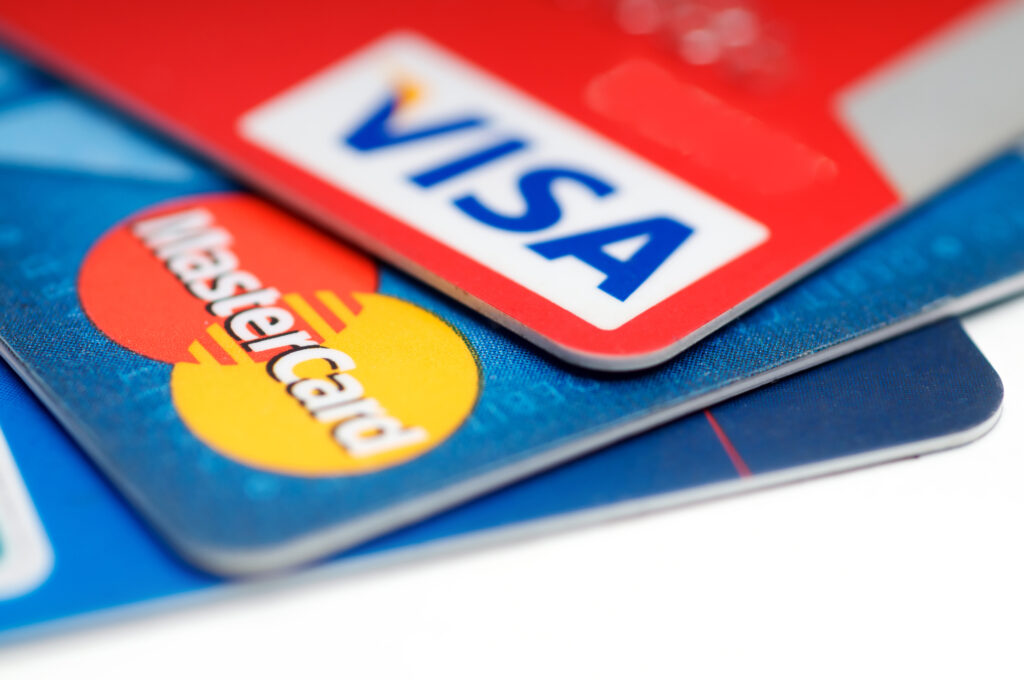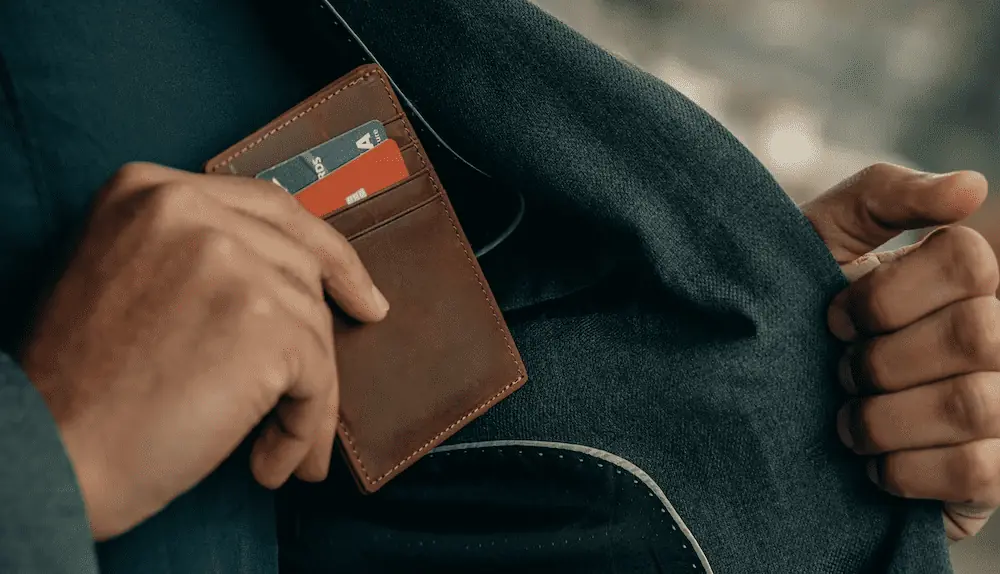As a small business owner, it is crucial to accept credit card payments to stay competitive and meet consumer preferences. However, doing so also exposes you to potential credit card security risks for small businesses. You can reduce these risks to avoid costly mistakes such as lost revenue, stolen customer information, and fines.
One way to do this is to stay informed and know the rules regarding accepting credit cards. Additionally, you should pay attention to any simple security risks in getting credit cards for small businesses that could have severe consequences. To protect your business and customers, it is essential to be proactive and understand the risks involved in accepting credit card payments in person.
Credit Card Security Risks for Small Businesses that Should be Aware of

Counterfeit Credit Cards
As a business owner, it is essential to spot counterfeit credit cards, especially when dealing with a big line of consumers. Fake credit cards may include extensive scratches or damage to the barcode. Another red flag is if the numerals are crooked or do not line up as they should, indicating that perhaps the card is a forgery.
Educating yourself and the staff about the appearance and feel of a credit card is critical. This will assist you in identifying a fake when you come across one. Additionally, look out if the user says their card’s chip isn’t working and ask for ID before you manually run it.
Also, pay attention to the card’s magnetic strip. If it’s scratched or damaged, it could be a sign that the card is fake. In case of any doubt, call the bank on the card’s back to confirm the authenticity of the credit card.
Staff Error
It’s crucial to ensure that you and your staff are appropriately trained in handling credit card transactions to avoid potential fraudulent transactions and legal action. Not being adequately trained can leave your business vulnerable to these incidents.
When taking credit card payments, it is critical to understand how to manage credit card data fully and to comprehend what is and is not permissible. You have a duty as a business owner to do all possible to protect your client’s data, not just for the good of your company but also due to the law.
Effective employee training programs can help to show employees how to handle credit card data and recognize fraudulent transactions. They should also be aware that not all security risks in accepting credit cards for small businesses come from outside the company’s walls.
According to a study by the Ponemon Institute, 54% of data breaches are caused by employee negligence. This highlights the importance of investing in a secure network, regular password updates, and implementing a separate Wi-Fi network for guests and a top-of-the-line firewall.
Cash Refunding
Correctly processing credit card returns is crucial for your business to avoid financial loss. One critical thing to remember is that if a customer purchases a credit card, they should get a refund back to the card and not in cash. This is because many businesses tend to allow customers to buy a credit card and get back the product for money instead of refunding it to the card.
This can lead to issues, such as the original purchase using a stolen card, that fraudsters return the products to get cash. It’s a common tactic used by fraudsters to take advantage of businesses unaware of this scenario.
It’s essential to be vigilant and have a process to check for suspicious returns or refund requests. This may include asking for identification, comparing the rescue with the original purchase, monitoring for patterns of suspicious behavior, and educating your staff on how to recognize and handle potential fraudulent returns is crucial. Doing so can protect your business against financial loss and possible legal action.
Missing Signatures
When processing credit cards in person, missing signatures can pose a security risk. Many card networks no longer require signature verification for firms that use an EMV-compliant reader for credit cards.
Customers may still be required to sign a ticket when adding a gratuity in some circumstances, such as restaurants. Businesses that don’t have an EMV card machine may also run cards manually.
When accepting credit cards, it’s usually a good idea to ask for identification to safeguard the security of your company and your clients. In these situations, or when there is suspicion, it is critical to look for a signature on the card’s reverse side and request identification.
This is particularly important for smaller businesses, as larger companies may sometimes have strict protocols.
Point-of-Sale Skimming
Skimming is a form of credit card fraud where an employee or a fraudster uses a device to copy the card information. One of the ways it can happen is through POS tampering, where a skimmer is installed on an existing terminal; it’s quick and easy to do.
The most dangerous form of skimming is when criminals pose as representatives of your bank or processing company, replacing your equipment with a clone that transmits the card information directly to them or stores it until they return for the device. Monitoring your POS device for indications of manipulation and keeping it visible to consumers is essential if you want to prevent this kind of skimming.
One solution is to use a mobile card reader that allows servers to collect payment at the table or to ensure the card never leaves the customer’s sight. Additionally, never leave your processing device unattended during business hours, and regularly inspect it for any changes. Be wary of anyone claiming to be a representative of your bank or processor, and always call to verify their identity.
Conclusion
Accepting credit card payments may seem daunting, but it can be manageable by being aware of credit card security risks for small businesses and using good judgment. The benefits of accepting credit cards far outweigh the risks, but it’s essential to keep in mind that the threats may evolve as technology and consumer behavior change.
It’s crucial to adhere to industry security standards, keep staff members educated and trained, and invest in a reputable credit card processing business that will safeguard your data if you want to stay safe. By preparing your industry and remaining vigilant, you can enjoy the rewards of accepting credit cards while minimizing the risks.

